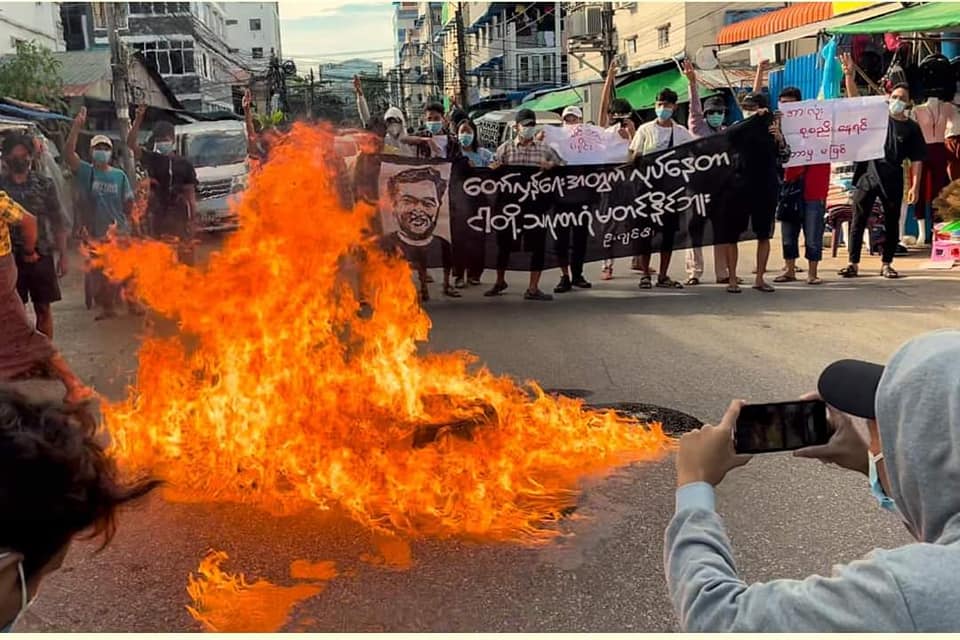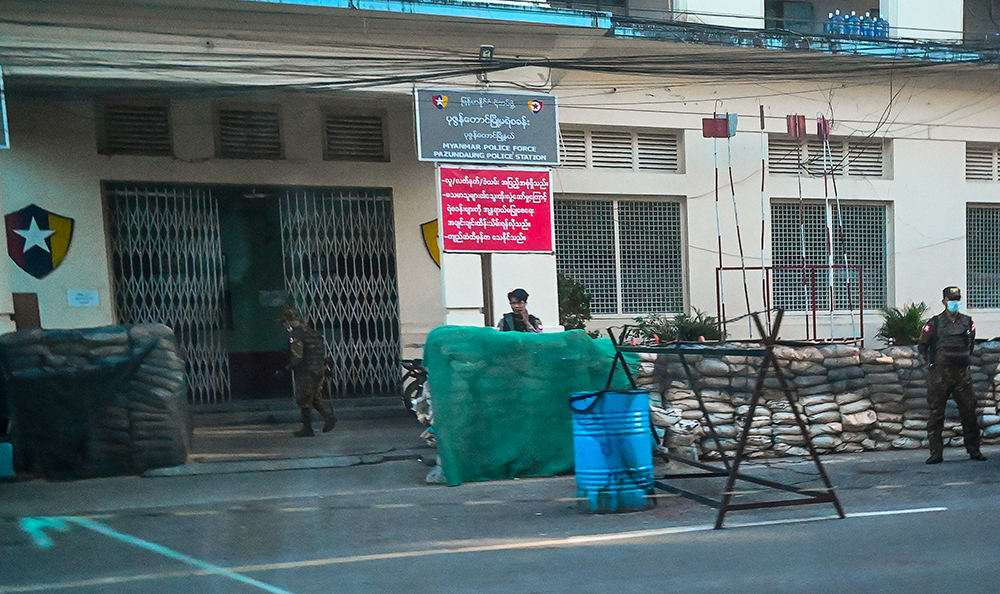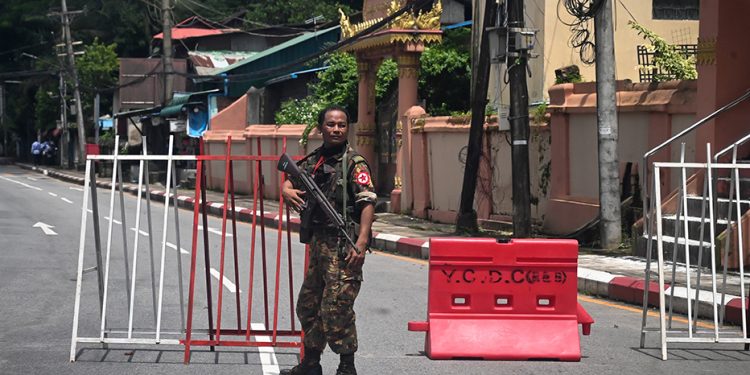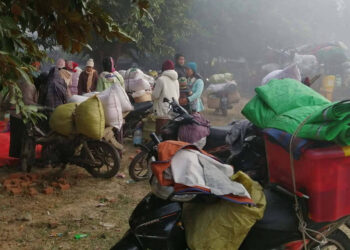The gallows at Yangon’s Insein Prison had been inactive for over three decades until last weekend. For 35 years, those given death sentences never expected to be hung and capital punishment came to be seen as a long jail sentence.
But the gallows were back in use again last weekend, as junta boss Senior General Min Aung Hlaing made yet another mistake.
Four anti-coup activists: Ko Jimmy, Ko Phyo Zeya Thaw, Ko Hla Myo Aung and Ko Aung Thura Zaw were hanged. It appears that the four were executed last Saturday, with news of the executions reported on Monday in junta-controlled newspapers.
The executions shocked and outraged Myanmar people at home and abroad. Yangon’s streets were deserted as residents mourned the four men. People had grief and anger written on their faces as they made sure to stay away from junta checkpoints.
Social media was full of responses to the hangings. A gloomy mood dominated offices.
“As all the staff were moody, the boss let us clock off early,” a Yangon resident said of July 25, the day the news of the executions emerged. The fact that the families of the four victims were denied access to their bodies only made people more upset and angry. That night, Yangon was eerily empty as everyone went home early.
Ugly scenes in Yangon
On Tuesday, the military regime held a regular press briefing in the capital Naypyitaw. Despite condemnation from around the globe, junta spokesman Major General Zaw Min Tun defended the executions, saying that the four men deserved many death sentences. There was not a trace of remorse in his voice.

Yangon turned ugly the following day when the homes of Ko Phyo Zeya Thaw in downtown Yangon and Ko Jimmy in Insein Township were pelted with stones and other projectiles by mobs of junta-backed thugs. The fact that they came together in cars showed that it was a prearranged attack, while the fact that they knew the addresses of Ko Jimmy and Ko Phyo Zeya Thaw showed that the regime is behind them.
“They are not humans to threaten the bereaved families,” one Yangon resident remarked.
Yangon stained with blood again
Attacks on junta targets have been few and far between in Yangon recently. However, the executions have sparked a wave of retaliatory attacks.
Ko Phyo Zeya Thaw was hanged for masterminding Operation Nan Htike Aung, an operation targeting junta forces in Yangon. Now the executed former lawmaker gave his name to a new resistance operation: Operation Zeya Thaw.
Resistance group Peacock Fighter attacked two police stations in Yangon’s Thaketa Township with bombs on Wednesday night, calling the attacks revenge for extrajudicial executions. “May our four martyrs take pride in our attacks,” the resistance group said in a statement.
On Tuesday, resistance groups also carried out an attack on Tat Kon Village where pro-junta Pyu Saw Htee militia are based in Pauk Township, Magwe Region.
A local administrator in Yangon’s Botahtaung Township was also attacked outside of Operation Zeya Thaw. The attack was retaliation for the tragic incident last August when five young people, including a woman, jumped to their deaths from a four-story building in Botahtaung rather than surrender to junta soldiers raiding them.

Three other people including a woman were arrested in the raid that came from a tip-off by the local administrator Thein Win, an alleged military informant. He was reportedly injured in the attack, but survived.
One Yangon taxi driver said that the anti-regime slogan “No negotiations after the bloodshed” is true now. “We have to be cautious all the time now,” he said as he drove along a road filled with barricades erected by the junta.
“I go home early these days. There are no people on the roads once it gets dark,” he said.
Yangon is now a danger zone
The United States Embassy in Yangon urged its citizens to stay away from junta security forces on Wednesday, in response to social media posts calling for increased attacks against the regime throughout the country, in Yangon in particular.
“All are reminded that attacks can happen anywhere at any time. All should anticipate possible communication outages. It is also recommended to have seven days of food, water, and medicine available in case the regime announces lockdowns or if movement throughout the city becomes too dangerous,” said the security alert.
Since the coup, foreign businesses have gradually left Yangon, the country’s commercial capital. At important locations and intersections junta soldiers stand behind sandbags and barbed wire to respond to any attack, while regime vehicles patrol the streets.
Yangon, once a place full of fun, has become wearily familiar with gun attacks and explosions, and has lately become one of the dangerous cities in the world. Now, since the executions, the danger level is even higher.

















